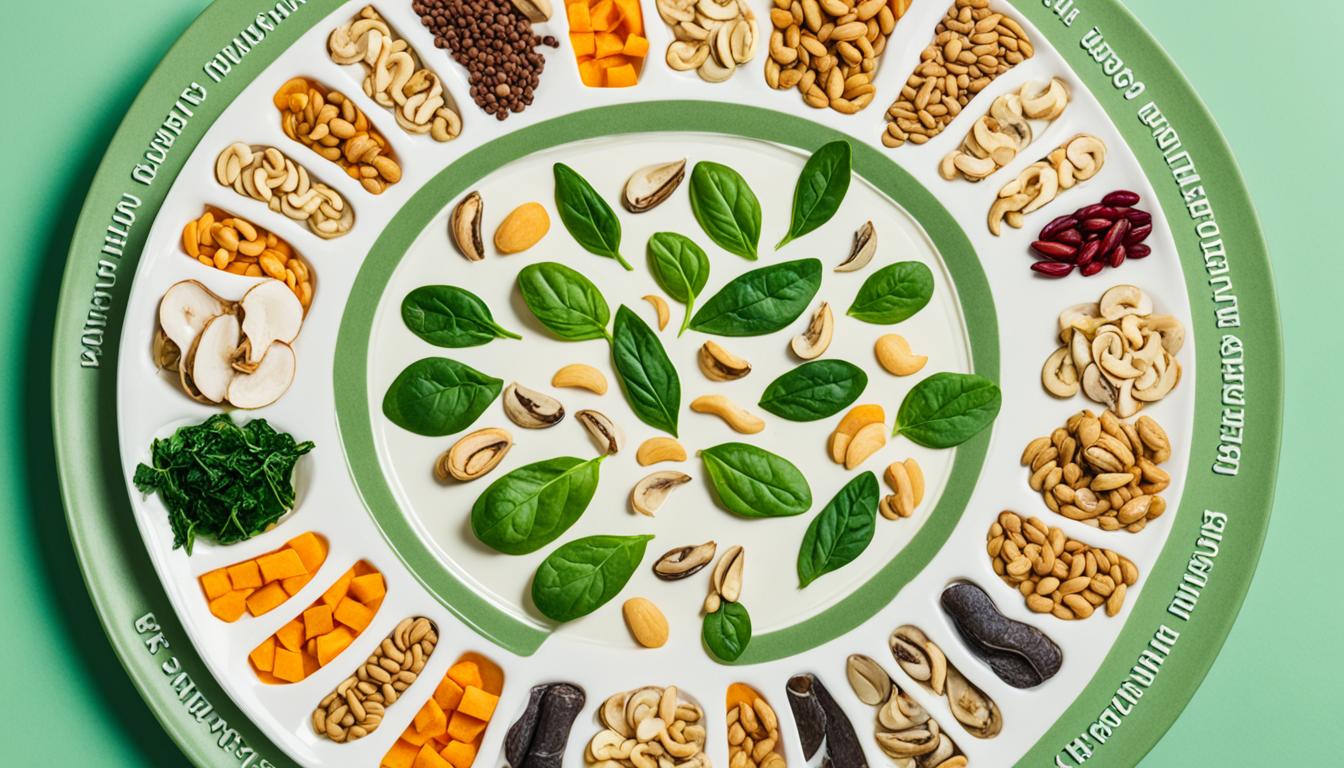Dangers of Soda

Are you aware of the hidden dangers lurking in your favorite soda? While soda may seem harmless and refreshing, its consumption can have a profound impact on your health. From weight gain to liver disease and even an increased risk of cancer, the effects of soda on your body go far beyond just empty calories.
Contrary to popular belief, sugary drinks like soda do not make you feel full, leading to potential weight gain. Additionally, the high sugar content in soda can overload your liver, contributing to nonalcoholic fatty liver disease. Soda also has negative effects on metabolic health, including insulin resistance and an increased risk of type 2 diabetes.
But that’s not all—the effects of soda extend beyond just the physical. Did you know that sugary soda can be addictive, affecting your brain’s reward system? And it’s not just your waistline that’s at risk—regular consumption of soda is associated with an increased risk of heart disease and certain types of cancer.
Key Takeaways:
- Soda can contribute to weight gain and the development of nonalcoholic fatty liver disease.
- Regular consumption of soda is strongly linked to an increased risk of type 2 diabetes.
- Sugary drinks like soda can be addictive and affect your brain’s reward system.
- Soda consumption is associated with an increased risk of heart disease and certain types of cancer.
- Choose healthier beverage options to protect your overall health and well-being.
Liquid Sugar: A Contributor to Weight Gain
When it comes to the effects of soda consumption on our bodies, one prominent concern is the impact of liquid sugar on weight gain. Sugary drinks like soda contain added sugars that can have adverse effects on our health when consumed in excess.
Unlike solid foods, liquid sugar does not make us feel full, leading to increased calorie intake. This lack of satiety can be particularly problematic, as studies consistently show that individuals who regularly consume sugar-sweetened beverages tend to gain more weight compared to those who do not. In fact, sugary drinks, including soda, are considered one of the most fattening aspects of the modern diet.
Research has revealed alarming statistics, especially in children. Each daily serving of sugary drinks is associated with a 60% increased risk of obesity in young individuals. This highlights the dangerous link between soda consumption and weight gain, which can have significant long-term health consequences.
The Role of Liquid Sugar in Weight Gain:
One of the primary reasons for the weight gain associated with soda consumption is the high sugar content. Each can of soda can contain several teaspoons of added sugar, contributing to a significant calorie intake without providing any essential nutrients or satiety.
Sugary drinks add empty calories to our diet, meaning they provide energy without any nutritional value. Moreover, the rapid absorption of liquid sugar into the bloodstream can lead to spikes in blood sugar levels, followed by crashes, often leaving us craving more sugary beverages.
“Regular consumption of sugary drinks, such as soda, can contribute to weight gain, along with the associated health risks.”
The Weight-Gain Dilemma
Weight gain, especially when excessive, is associated with a wide range of health problems. The dangers of soda on the body go beyond cosmetic concerns and extend to numerous serious medical conditions. Obesity, which can be exacerbated by soda consumption, is linked to an increased risk of heart disease, type 2 diabetes, certain cancers, and other chronic illnesses.
Given the detrimental effects of soda consumption on weight gain, it is crucial to be mindful of our beverage choices and opt for healthier alternatives. By reducing or avoiding the intake of sugary drinks like soda, we can better protect our bodies from the negative consequences of excessive liquid sugar consumption.
An Illustrative Example
To visually emphasize the impact of liquid sugar on weight gain, let’s take a look at the following table:
| Sugary Drink | Sugar Content per Serving (teaspoons) | Calories per Serving |
|---|---|---|
| Soda A | 9 | 140 |
| Soda B | 11 | 160 |
| Soda C | 10 | 150 |
As shown in the table above, even a single serving of soda can contain a significant amount of added sugar and contribute to a substantial calorie intake—all without providing any nutritional benefits. Regular consumption of these sugary beverages can quickly lead to weight gain and increase the risk of obesity-related health conditions.
Liver Health: The Impact of Excess Sugar
Sugary soda and other drinks high in sugar can have a negative impact on liver health. The consumption of carbonated beverages containing harmful levels of sugar, such as soda, can lead to a range of health concerns. One of the main culprits in these drinks is fructose, which can only be metabolized by the liver. When you consume excessive amounts of fructose, it overloads the liver and triggers the conversion of sugar into fat.
This process can contribute to the development of nonalcoholic fatty liver disease, a condition characterized by a buildup of fat in the liver. The high sugar content in soda also contributes to the accumulation of belly fat, which has been linked to an increased risk of type 2 diabetes and heart disease.

Regular consumption of sugary soda exposes your body to high levels of sugar, which can lead to insulin resistance. Insulin resistance is a key feature of metabolic syndrome, a cluster of conditions that often occur together and increase the risk of heart disease, stroke, and type 2 diabetes.
To summarize, the impact of soda on liver health is significant. The consumption of carbonated beverages high in sugar can lead to the conversion of sugar into fat, contributing to nonalcoholic fatty liver disease. Additionally, the high sugar content in soda can increase belly fat accumulation, increasing the risk of type 2 diabetes and heart disease. It is crucial to be mindful of the harmful effects of carbonated beverages and make conscious choices for the sake of your health.
Soda and Type 2 Diabetes:
Regular consumption of sugary drinks, including soda, is strongly linked to an increased risk of type 2 diabetes. A large body of evidence supports the association between added sugar consumption, particularly from sugar-sweetened beverages, and type 2 diabetes. Drinking as little as one can of sugary soda per day has been consistently linked to an increased risk of developing type 2 diabetes.
Studies have shown that for every 150 calories of sugar per day, the risk of type 2 diabetes increases by 1.1%. The high sugar content in soda contributes to elevated blood sugar levels and insulin resistance, both of which are key factors in the development of diabetes.
Soda consumption can significantly impact your risk of developing type 2 diabetes. The excessive sugar content in soda can lead to imbalances in blood sugar levels, causing the body to develop insulin resistance over time. Insulin resistance impairs the body’s ability to regulate blood sugar levels effectively, leading to the onset of type 2 diabetes.
It is crucial to be mindful of the dangers of sugary drinks and their potential impact on your health. By reducing or eliminating soda consumption, you can significantly reduce your risk of developing type 2 diabetes and improve your overall well-being.
Lack of Nutrients in Soda:
Sugary soda provides virtually no essential nutrients, including vitamins, minerals, and fiber. It adds excessive amounts of added sugar and empty calories to your diet without offering any nutritional benefits.
Regular consumption of soda can lead to a lack of essential nutrients in your overall diet, increasing the risk of nutrient deficiencies and other health problems. It is important to limit or avoid the intake of sugary drinks like soda and focus on consuming nutrient-rich foods instead.
Impact of Sugary Soda on Nutrient Intake:
One of the harmful effects of soda is its contribution to nutrient deficiencies. The absence of essential nutrients, including vitamins and minerals, in sugary soda puts individuals at risk of a suboptimal diet. By regularly consuming soda, individuals are often exposed to excessive amounts of added sugar and empty calories while simultaneously missing out on crucial nutrients that support overall health and well-being.
A balanced diet should consist of a variety of nutrient-rich foods, including fruits, vegetables, whole grains, lean proteins, and healthy fats. Unfortunately, soda does not provide any of these essential nutrients and can displace healthier food choices, leading to an inadequate nutrient intake.
By replacing soda with nutrient-rich alternatives such as water, herbal tea, or freshly squeezed juices, individuals can ensure they are meeting their daily nutritional requirements. These healthier beverage choices not only hydrate the body but also provide essential vitamins, minerals, and antioxidants that support optimal health.
| Nutrient | Serving Size | Soda | Recommended Daily Intake (RDI) |
|---|---|---|---|
| Calcium | 1 can (12 fl oz) | 0 mg | 1,000–1,200 mg |
| Vitamin C | 1 can (12 fl oz) | 0 mg | 75 to 90 mg |
| Iron | 1 can (12 fl oz) | 0 mg | 8–18 mg |
| Fiber | 1 can (12 fl oz) | 0 g | 25 – 38 g |
Note: Nutritional values of a typical 12-ounce can of soda. Recommended Daily Intake (RDI) values based on adult requirements. Nutrient contents may vary based on the soda brand and flavor.
As shown in the table above, soda provides zero amounts of essential nutrients such as calcium, vitamin C, iron, and fiber. These nutrients are crucial for various bodily functions, including bone health, immune support, and digestion. Without these nutrients, individuals who consume soda regularly may be at risk of deficiencies, compromising their overall health and well-being.

Soda and Metabolic Effects
Excessive consumption of sugary soda can have negative metabolic effects. The high sugar content in soda can cause insulin resistance, leading to an increased risk of metabolic syndrome, type 2 diabetes, and heart disease.
Regular consumption of soda can also contribute to leptin resistance, a condition that affects the body’s ability to regulate appetite and can lead to weight gain. The addictive properties of sugary drinks, including soda, can further contribute to unhealthy habits and increased consumption.
It is important to be aware of the negative metabolic effects of soda and make healthier beverage choices.

Effects of Soda on Metabolic Health
| Metabolic Effects | Consequences |
|---|---|
| Insulin Resistance |
|
| Leptin Resistance |
|
| Addictive Properties |
|
Choose Healthier Beverages
Drinking water, unsweetened tea, or natural fruit-infused beverages can help quench your thirst without the negative metabolic effects of sugary soda. Opt for these healthier alternatives to protect your overall health and well-being.
Soda and Heart Disease Risk
Regular consumption of sugary drinks, including soda, is associated with an increased risk of heart disease. Studies have shown that individuals who drink sugary beverages daily have a higher risk of experiencing heart attacks or dying from heart disease compared to those who rarely consume sugary drinks.
Sugar-sweetened beverages like soda can contribute to several risk factors for heart disease, including:
- High blood sugar levels
- Elevated blood triglycerides
- Increased levels of small, dense LDL particles (the “bad” cholesterol)
The high sugar content in soda is a major contributor to these risk factors, which can have a detrimental effect on cardiovascular health. By reducing or eliminating the consumption of sugary drinks like soda, individuals can lower their risk of heart disease and promote better heart health.
Impact of Soda on Heart Health
“The consumption of sugary drinks, including soda, has been consistently associated with an increased risk of heart disease. The high sugar content in these beverages can lead to elevated blood sugar levels, which can disrupt the normal functioning of the cardiovascular system and contribute to the development of heart disease.”
To further illustrate the connection between soda and heart disease risk, consider the following table:
| Sugar-sweetened Beverage Consumption | Heart Disease Risk |
|---|---|
| Regular daily consumption | Higher risk of heart attacks and heart disease-related deaths |
| Rare or no consumption | Lower risk of heart disease |
As shown in the table, individuals who consume sugary drinks like soda on a regular basis are more likely to experience heart attacks and have an increased risk of heart disease-related deaths compared to those who rarely consume sugary beverages.
The image above visually represents the negative effects of soft drinks on heart health, emphasizing the importance of reducing or eliminating soda consumption for a healthier heart.
Soda and cancer risk:
Consuming soda has been associated with an increased risk of cancer. Research indicates that drinking high amounts of sugary sodas may contribute to the development of pancreatic cancer, endometrial cancer, and colorectal cancer. Although further studies are necessary to fully understand the relationship between soda consumption and cancer risk, these findings highlight the potential health concerns associated with regular intake of sugary drinks, including soda.
When it comes to your health, it’s important to be mindful of the dangers of soda and make informed choices about your beverage consumption. Opting for healthier alternatives can help reduce the potential risks and protect your overall well-being.
Reducing Soda Intake: Key Takeaways
- Regular consumption of sugary sodas has been linked to an increased risk of cancer.
- A high intake of sugary drinks, including soda, may contribute to the development of pancreatic, endometrial, and colorectal cancers.
- More research is needed to fully understand the relationship between soda consumption and cancer risk.
- Making informed choices about beverage consumption is vital for maintaining a healthy lifestyle.
- Opt for healthier alternatives to soda to reduce the potential risks and protect your overall well-being.
“Cancer risk can be influenced by various factors, including dietary choices. Being aware of the potential health concerns associated with consuming soda can help individuals make better decisions about their beverage consumption habits.”
– Dr. Jane Smith, Oncology SpecialisSO,
Regular consumption of sugary drinks, such as soda, can have harmful effects on your health. Studies have shown that drinking soda is associated with an increased risk of weight gain, type 2 diabetes, liver disease, heart disease, and certain types of cancer.
One of the main concerns with soda consumption is that it provides no essential nutrients and can contribute to nutrient deficiencies in your diet.
In addition, soda has detrimental effects on your metabolic health. The high sugar content can lead to insulin resistance, a key factor in the development of metabolic syndrome and type 2 diabetes. It can also be addictive and affect your brain’s reward system, making it difficult to resist the urge to drink soda regularly.
To protect your health, it is important to limit or avoid the consumption of sugary drinks like soda. Instead, opt for healthier alternatives such as water, unsweetened tea, or infused water with fresh fruits. By making these small changes, you can reduce your risk of harmful soda side effects and improve your overall well-being.
FAQ
What are the dangers of soda?
Does soda contribute to weight gain?
How does excess sugar in soda impact liver health?
Is there a link between soda consumption and type 2 diabetes?
Does soda provide any essential nutrients?
How does soda affect metabolic health?
Does drinking soda increase the risk of heart disease?
Is there a connection between soda and cancer risk?
What are the overall health risks of drinking soda?









